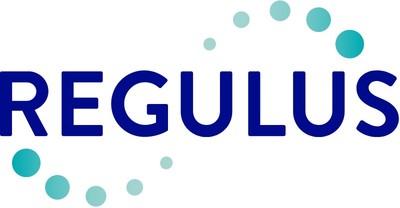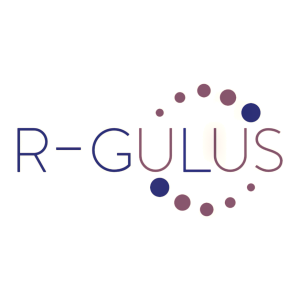Regulus Therapeutics Announces Receipt of FDA Orphan Drug Designation for RGLS8429 for the Treatment of Autosomal Dominant Polycystic Kidney Disease (ADPKD)
Regulus Therapeutics Inc. (Nasdaq: RGLS) announced that the FDA has granted orphan drug designation to RGLS8429 for treating Autosomal Dominant Polycystic Kidney Disease (ADPKD), affecting approximately 160,000 Americans. This designation may provide financial incentives and up to seven years of market exclusivity. RGLS8429, designed to inhibit miR-17, has shown promising preclinical results. The company is currently conducting a Phase 1 study to evaluate its safety and pharmacokinetics. The CEO expressed a commitment to improving treatment options for ADPKD patients.
- FDA granted orphan drug designation to RGLS8429 for ADPKD treatment.
- Potential financial incentives and up to seven years of market exclusivity.
- RGLS8429 demonstrated robust preclinical data, showing improvements in kidney function.
- None.
Insights
Analyzing...
SAN DIEGO, June 21, 2022 /PRNewswire/ -- Regulus Therapeutics Inc. (Nasdaq: RGLS), a biopharmaceutical company focused on the discovery and development of innovative medicines targeting microRNAs (the "Company" or "Regulus"), today announced that the U.S. Food and Drug Administration (FDA) has granted orphan drug designation (ODD) to RGLS8429 for the treatment of Autosomal Dominant Polycystic Kidney Disease (ADPKD).
"Patients living with ADPKD currently have limited treatment options and approximately half of patients develop end-stage renal disease by age 60 requiring dialysis or transplantation," commented Jay Hagan, CEO of Regulus Therapeutics. "ADPKD is a disease of high unmet need affecting nearly 160,000 Americans. We look forward to advancing RGLS8429 through the clinic with the goal of improving future treatment options for patients in need."
The FDA's Office of Orphan Products Development grants orphan designation status to drugs and biologics that are intended for the safe and effective treatment, diagnosis or prevention of rare diseases, or conditions that affect fewer than 200,000 people in the U.S. Orphan designation status is intended to facilitate drug development for rare diseases and may provide several benefits to drug developers, including financial incentives, to support clinical development and the potential for up to seven years of market exclusivity in the U.S. upon regulatory approval.
About ADPKD
Autosomal Dominant Polycystic Kidney Disease (ADPKD), caused by mutations in the PKD1 or PKD2 genes, is among the most common human monogenic disorders and a leading cause of end-stage renal disease. The disease is characterized by the development of multiple fluid filled cysts primarily in the kidneys, and to a lesser extent in the liver and other organs. Excessive kidney cyst cell proliferation, a central pathological feature, ultimately leads to end-stage renal disease in approximately
About RGLS8429
RGLS8429 is a novel, next generation oligonucleotide for the treatment of ADPKD designed to inhibit miR-17 and to preferentially target the kidney. Administration of RGLS8429 has shown robust data in preclinical models, where clear improvements in kidney function, size, and other measures of disease severity have been demonstrated along with a superior pharmacologic profile in preclinical studies compared to Regulus' first-generation compound. Regulus is currently conducting a Phase 1 single-ascending dose study in healthy volunteers to assess safety, tolerability, and pharmacokinetics of RGLS8429.
About Regulus
Regulus Therapeutics Inc. (Nasdaq: RGLS) is a biopharmaceutical company focused on the discovery and development of innovative medicines targeting microRNAs. Regulus has leveraged its oligonucleotide drug discovery and development expertise to develop a pipeline complemented by a rich intellectual property estate in the microRNA field. Regulus maintains its corporate headquarters in San Diego, CA.
Forward-Looking Statements
Statements contained in this presentation regarding matters that are not historical facts are "forward-looking statements" within the meaning of the Private Securities Litigation Reform Act of 1995, including statements associated with the Company's RGLS8429 program, including the potential outcome of clinical development. Because such statements are subject to risks and uncertainties, actual results may differ materially from those expressed or implied by such forward-looking statements. Words such as "believes," "anticipates," "plans," "expects," "intends," "will," "goal," "potential" and similar expressions are intended to identify forward-looking statements. These forward-looking statements are based upon Regulus' current expectations and involve assumptions that may never materialize or may prove to be incorrect. Actual results and the timing of events could differ materially from those anticipated in such forward-looking statements as a result of various risks and uncertainties, which include, without limitation, risks associated with the process of discovering, developing and commercializing drugs that are safe and effective for use as human therapeutics and in the endeavor of building a business around such drugs, and the risk additional toxicology data may be negative. In addition, while Regulus expects the COVID-19 pandemic to adversely affect its business operations and financial results, the extent of the impact on Regulus' ability to achieve its preclinical and clinical development objectives and the value of and market for its common stock, will depend on future developments that are highly uncertain and cannot be predicted with confidence at this time, such as the ultimate duration of the pandemic, travel restrictions, quarantines, social distancing and business closure requirements in the U.S. and in other countries, and the effectiveness of actions taken globally to contain and treat the disease. These and other risks are described in additional detail in Regulus' filings with the Securities and Exchange Commission, including under the "Risk Factors" heading of Regulus most recently quarterly report on Form 10-Q. All forward-looking statements contained in this press release speak only as of the date on which they were made. Regulus undertakes no obligation to update such statements to reflect events that occur or circumstances that exist after the date on which they were made.
![]() View original content to download multimedia:https://www.prnewswire.com/news-releases/regulus-therapeutics-announces-receipt-of-fda-orphan-drug-designation-for-rgls8429-for-the-treatment-of-autosomal-dominant-polycystic-kidney-disease-adpkd-301571856.html
View original content to download multimedia:https://www.prnewswire.com/news-releases/regulus-therapeutics-announces-receipt-of-fda-orphan-drug-designation-for-rgls8429-for-the-treatment-of-autosomal-dominant-polycystic-kidney-disease-adpkd-301571856.html
SOURCE Regulus Therapeutics Inc.








